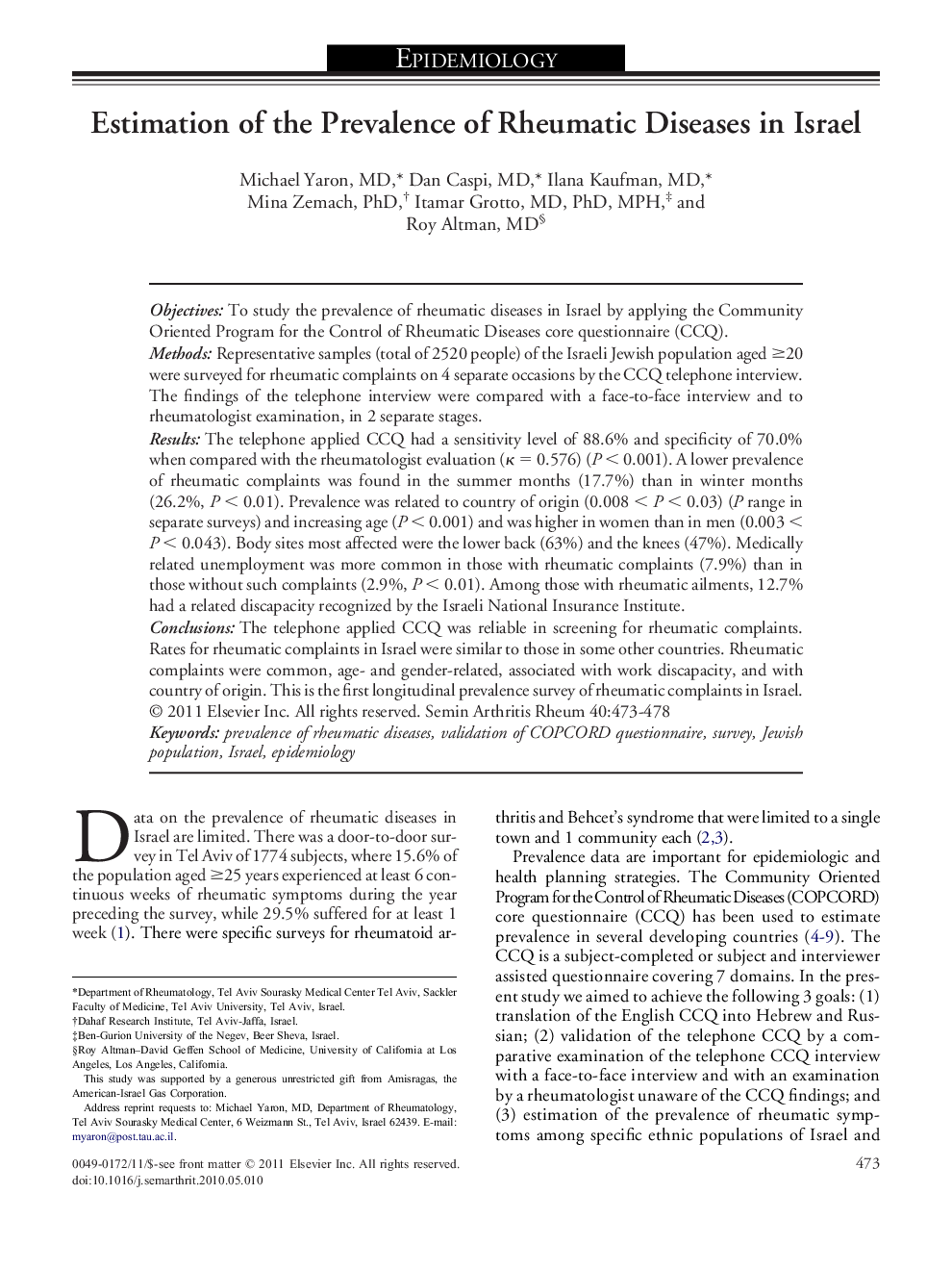| Article ID | Journal | Published Year | Pages | File Type |
|---|---|---|---|---|
| 2771678 | Seminars in Arthritis and Rheumatism | 2011 | 6 Pages |
ObjectivesTo study the prevalence of rheumatic diseases in Israel by applying the Community Oriented Program for the Control of Rheumatic Diseases core questionnaire (CCQ).MethodsRepresentative samples (total of 2520 people) of the Israeli Jewish population aged ≥20 were surveyed for rheumatic complaints on 4 separate occasions by the CCQ telephone interview. The findings of the telephone interview were compared with a face-to-face interview and to rheumatologist examination, in 2 separate stages.ResultsThe telephone applied CCQ had a sensitivity level of 88.6% and specificity of 70.0% when compared with the rheumatologist evaluation (κ = 0.576) (P < 0.001). A lower prevalence of rheumatic complaints was found in the summer months (17.7%) than in winter months (26.2%, P < 0.01). Prevalence was related to country of origin (0.008 < P < 0.03) (P range in separate surveys) and increasing age (P < 0.001) and was higher in women than in men (0.003 < P < 0.043). Body sites most affected were the lower back (63%) and the knees (47%). Medically related unemployment was more common in those with rheumatic complaints (7.9%) than in those without such complaints (2.9%, P < 0.01). Among those with rheumatic ailments, 12.7% had a related discapacity recognized by the Israeli National Insurance Institute.ConclusionsThe telephone applied CCQ was reliable in screening for rheumatic complaints. Rates for rheumatic complaints in Israel were similar to those in some other countries. Rheumatic complaints were common, age- and gender-related, associated with work discapacity, and with country of origin. This is the first longitudinal prevalence survey of rheumatic complaints in Israel.
